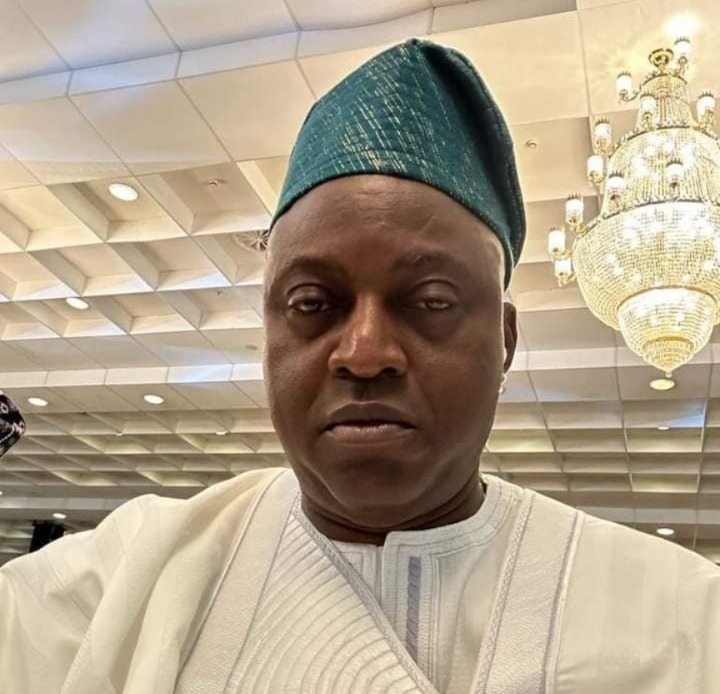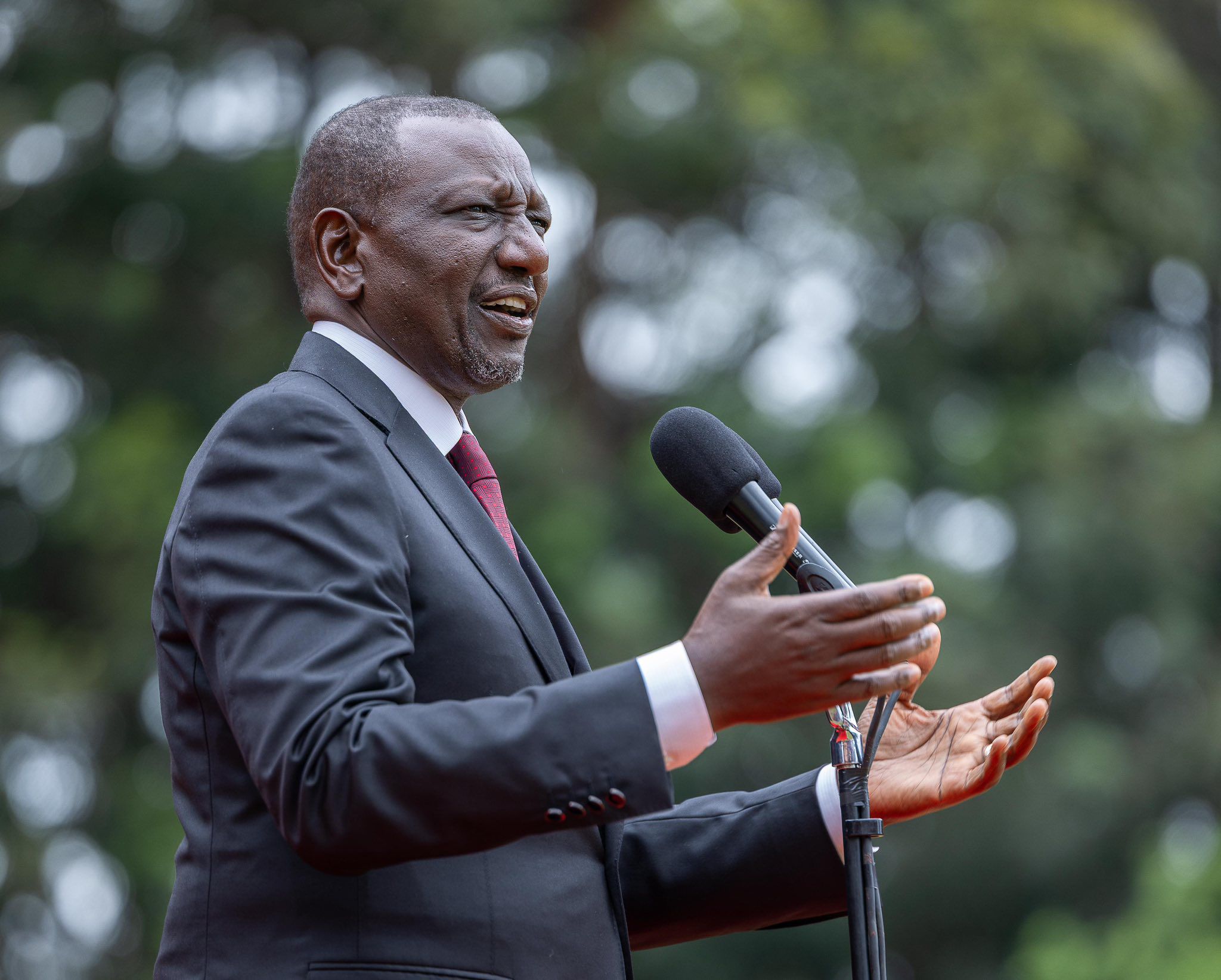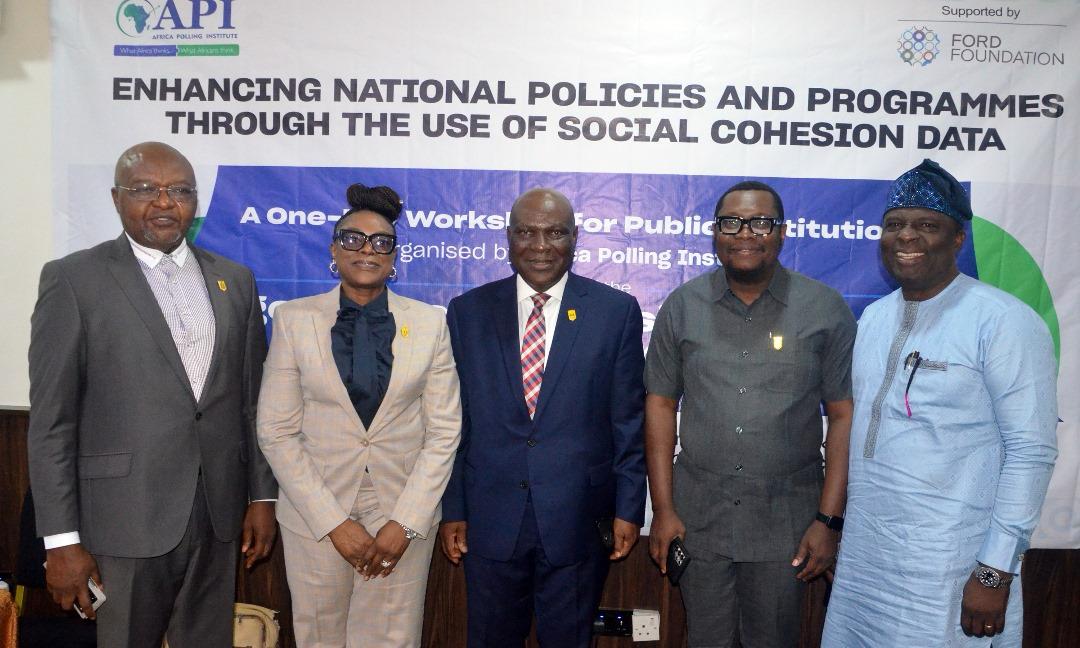Experts urge Nigerian government to leverage social cohesion data for policy reform
Policy experts and researchers have urged the Nigerian government to urgently apply social cohesion data in the formulation and implementation of national policies, warning that persistent disunity, deepening distrust in public institutions, and systemic inequality are undermining the country’s development efforts.
The call was made on Tuesday at a capacity-building workshop hosted in Abuja by the Africa Polling Institute (API), an independent opinion research think tank, with support from the Ford Foundation.
The workshop was themed: “The Use of Social Cohesion Data in Enhancing National Policies and Programmes and Promoting Effective Media Reportage.”
Speaking at the event, Bell Ihua, Executive Director of API, said the objective was to ensure that the findings from the Nigeria Social Cohesion Survey were actively integrated into policy planning and national discourse.
“We want this data to permeate society,” Mr Ihua said. “Our goal is for public institutions to integrate it into their planning and for journalists to support national cohesion through informed reporting.”
He explained that API’s Social Cohesion Survey—conducted in 2019, 2021, and 2022—has consistently shown a steady decline in national unity and public trust.
The 2022 index dropped to 39.6 per cent, down from 44.2 per cent in 2021, falling well below the 50 per cent benchmark, and indicating what Mr Ihua described as “a national cohesion crisis.”
“One of our most troubling findings is that citizens have very little trust in government institutions, including governors and public officers,” he said.
“But we also observed something striking—despite ethnic and religious divisions, many Nigerians are now united in a shared struggle for survival. That shared hardship is a potential foundation for rebuilding unity.”
Mr Ihua, a professor, said indicators of weak cohesion in Nigeria include public mistrust, perceptions of injustice, gender inequality, and widespread insecurity. These, he stressed, require urgent, data-driven policy responses.
Also speaking at the event, Soji Adeniyi, a member of API’s Board of Trustees, underscored the importance of grounding governance decisions in empirical evidence rather than assumptions.
“We’ve been gathering this data since 2019, and it evolves year after year with the realities of the country,” Mr Adeniyi said. “We felt it was time to engage those responsible for nation-building and governance with this evidence. We can’t continue to rely on assumptions. Scientific data must lead the way.”
Meanwhile, Steve Ogidan, CEO of Successory Nigeria Ltd., emphasised that any effort to rebuild national cohesion must intentionally include the voices of youth, women, and marginalised communities.
“We must link performance-based budgeting with social investment and targeted interventions that actually promote inclusion,” Mr Ogidan said. “That’s how we translate data into real change.”
One of the workshop participants, Amina Zemo, said the session reinforced the urgent need for policymakers to rebuild public trust and close societal divides using evidence-based approaches.
“Citizens need to know their voices are heard, and that policies reflect their real needs,” she said. “This kind of data tells the government exactly what the people want.”
The workshop drew participants from a broad range of national institutions, including the National Human Rights Commission (NHRC), National Orientation Agency (NOA), and National Sports Commission (NSC), among others.
The 2022 Nigeria Social Cohesion Index, published by API, revealed that only 17 per cent of Nigerians trust the federal government—down from 26 per cent in 2021. In contrast, religious leaders (55 per cent) and traditional rulers (44 per cent) continue to command significantly higher levels of public trust.
The 2021 report concluded that “Nigeria is much more divided today than it was four years ago,” attributing the decline to poor governance, systemic inequality, and widespread exclusion.
As Nigeria prepares for future national development reviews and policy dialogues, participants at the workshop stressed that rebuilding social cohesion must become a top priority—driven by facts, not political slogans.
The Nigeria Social Cohesion data is publicly available here.










